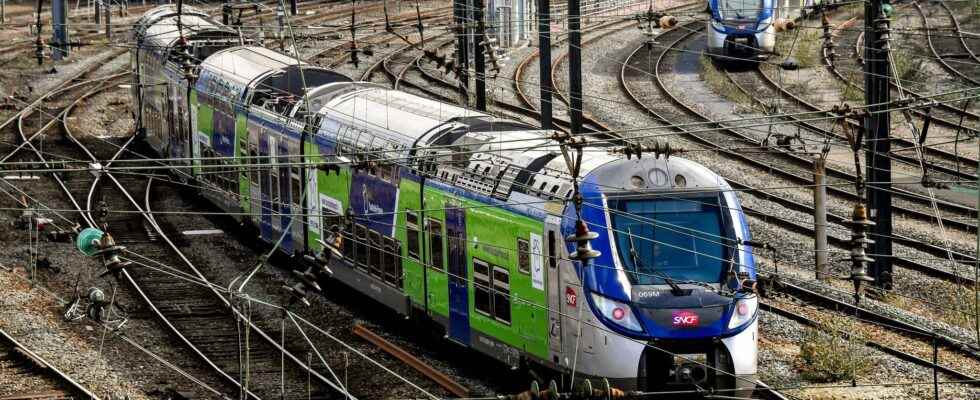It is “massive support” for rail, which is “the backbone of mobility”, in the words of Elisabeth Borne. The Prime Minister announced this Friday, February 24, a plan of 100 billion euros by 2040 for rail transport, an infrastructure which “will allow us to make a success of the ecological transition”, she declared.
“The State wishes to commit, alongside the SNCF, the European Union and local authorities, to achieve a ‘new railway deal’, of the order of 100 billion euros by 2040”, she said when she received a report from the Infrastructure Orientation Council (COI), a college made up of elected officials and experts responsible for working on the issue. This amount corresponds to the estimate of the needs launched by the CEO of the SNCF Jean-Pierre Farandou, who envisaged this expenditure over fifteen years.
Concretely, the State will begin by adding 1.5 billion euros per year to current budgets by the end of the five-year term to regenerate and begin to modernize the railways. “We must invest in the development of the network”, indicated Elisabeth Borne.
The launch of “metropolitan RERs”
One of the first concretizations will be the launching of “metropolitan RER” in the big French agglomerations. “Beyond the continuation of new line projects initiated and the relaunch of night trains, this will involve the deployment of metropolitan RERs,” she said.
The Société du Grand Paris (SGP), which is currently building the Grand Paris metro around the capital, must work in tandem with SNCF Réseau to design these suburban links around a dozen major provincial agglomerations. She “will put her skills at the service of the regions and will start discussions with the local executives concerned in March to determine the timetable, the operational and financing methods”, indicated the head of government.
The government intends to take as a basis, among the proposals of the IOC, a so-called “ecological planning” scenario. This moves away from the current budget framework to add investments deemed “the most relevant to facilitate modal shift (from road to public transport) and decarbonization”.
Giving priority to the modernization of the rail network and daily transport, the scenario also wants to emphasize the renovation of roads and waterways, but invites us to think twice before building new roads.
“A historic investment for our transport”
The government intends to launch discussions next March with the regions and partners concerned – in particular within the framework of the negotiations of the State-region plan contracts (CPER) -, in order to have in June 2023 a precise planning of infrastructure investments. transport.
Thursday evening, the Minister of Transport Clément Beaune had praised on Twitter “a historic investment for our transport! A central contribution to the ecological transition. An essential effort for the rail network. We are up to it and at the rendezvous”.
The Climate Action Network, which federates associations involved in the fight against climate change, had for its part “welcomed” this announcement, stressing however that “the challenge now is that the government details a coherent mobility policy from start to finish. end with our climate objectives by announcing the cessation of investments in all new road projects”.
